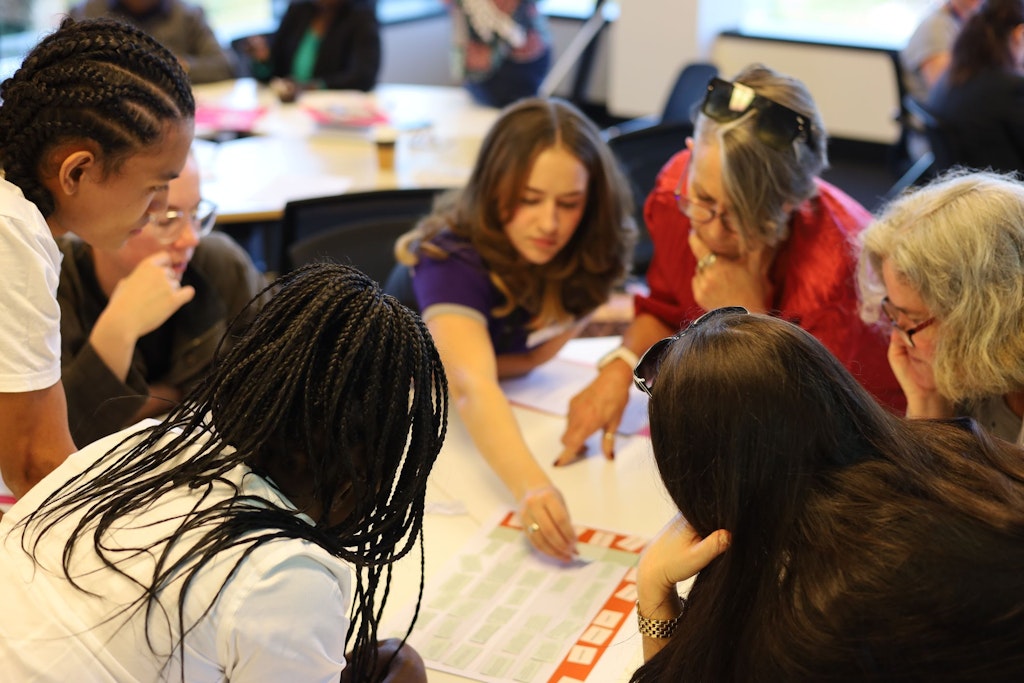Innovative alliance takes a unified approach to aged care training
Last updated on 3 September 2024

A standardised industry-wide induction might be the solution to streamlining the onboarding process for aged care workers following a proof-of-concept trial involving four aged care service providers and the Australian Catholic University.
Key points
- The National Care Workforce Alliance (NaCWA) delivered a proof of concept trial run of the ‘NaCWA Care Work Essentials: Getting Ready to Work in the Care Sector’ training session
- Foundation partners Australian Catholic University (ACU), BallyCara, Burnie Brae, Centacare and Xavier co-created the training to provide a standardised industry-wide induction for all workers in the care sector
- A four-hour training session saw attendees learn about the Code of Conduct, what a typical day as a support worker looks like, self-care tips and how to communicate effectively
- The training trial is one element of NaCWA’s Queensland pilot, a project funded by Jobs Queensland to help address the care workforce crisis in Queensland and across Australia
With a range of challenges impacting care recruitment in Australia, NaCWA hopes that a collaborative approach to developing and trialling a range of processes, training and supporting technology will increase worker attraction and improve mobility, retention and wellbeing.
They hope to achieve this by addressing some of the key concerns, such as growing recruitment costs, repetitive onboarding requirements for workers involved with multiple organisations and limited career opportunities or pathways for staff.
Aynsley Johnson, Head of Care Services, Burnie Brae, said that having a purpose-built onboarding process that doesn’t just stick to the ‘tick box compliance’ topics will enable the industry to have a new quality of workers that are even more empowered and equipped to understand the job they’re getting into.
“We anticipate that retention rates will be stronger as a result of that [standardised onboarding and training], and that’s what we’re looking for,” she said.
Joanne Roy, General Manager – Aged Care & Housing, Centacare, called the industry-first alliance between multiple care providers a game changer.
“It’s an innovative solution to a problem that all providers and candidates are experiencing. I think it [the Alliance] could provide a really meaningful and long-term benefit to the industry,” she said.

Another key deliverable of the Queensland Pilot is the development and trial of a digital skills passport to provide care workers with evidence of onboarding and other training endorsed across multiple employers to improve mobility between employers.
The skills passport is a digital platform designed to securely store and manage verified worker qualifications in one central location, enabling care workers to easily access their competency data and share their skills and training with other potential employers.
Providers will use the skills passport to post jobs and identify suitable candidates, significantly streamlining current recruitment processes.
“We need to make it as easy as possible for people working in the sector to move amongst providers, and to remove barriers for those wanting to enter the sector,” Ms Roy said.
“The skills passport enables this as it simplifies the compliance process for the worker.”
Richard Littler, CEO of disability service provider Xavier, added that the skills passport is the perfect way for workers to connect with providers and for providers to share training and resources across the industry.
“The benefits far outweigh what we can do individually – sharing training, sharing recruitment, sharing the expenses of initiatives like the skills passport,” he said.
“You can’t have the same impact when you do that on your own. If you do it collectively you can work with partners like ACU, colleges or other training providers, not only to leverage their knowledge, research, resources and diligence, but also the thousands of students they have.
“We don’t do enough university partnering in the care sector, and it can only be a good thing moving forward.”
ACU Occupational Therapy student, Stephanie, said the training session was enjoyable and informative.
“It was good to hear from lots of care providers. It was really nice to hear more about the wellness side and how to take care of yourself. I came along because I really wanted a new job and I was considering doing OT in Aged Care so I thought this was the perfect opportunity,” she said.
“I really love that this is a trial/study as well because then I can have a voice if something isn’t working.”
The skills passport is currently being trialled by the training attendees. Feedback from attendees will also be gathered ahead of an expanded program rollout to New South Wales and Victoria. Foundation partners Catholic Healthcare and Calvary will be involved as well.
All seven NaCWA Foundation Partners are also commencing a deep dive care workforce research project. Over 200 in-depth interviews with current care workers will be conducted to better understand workforce sentiment. Results are expected to be released at the end of 2024.